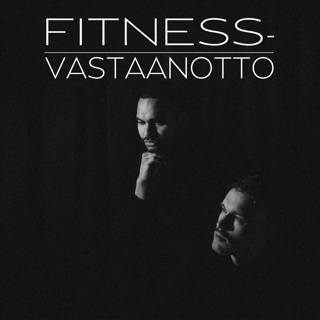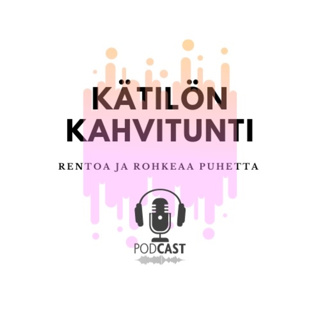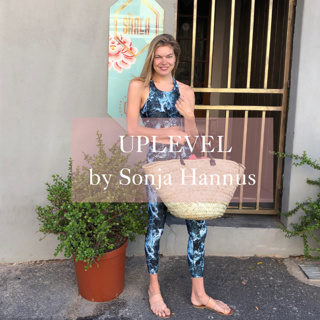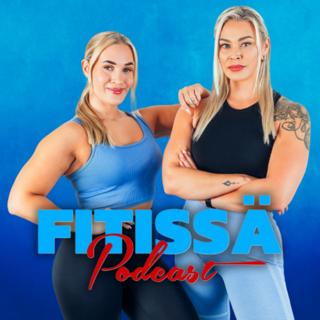
BITESIZE | The Best Type of Exercise to Reduce Stress and Anxiety | Dr Roger Seheult #363
You may have heard that exercise can really help to support mental health, but which type of exercise is best? Feel Better Live More Bitesize is my weekly podcast for your mind, body, and heart. Each week I’ll be featuring inspirational stories and practical tips from some of my former guests. Today’s clip is from episode 242 of the podcast with California based medical doctor, Roger Seheult. In this clip, Roger explains the connection between stress, inflammation and immunity, and he shares the type of exercise that studies show is most effective in lowering stress, anxiety and fear. Thanks to our sponsor athleticgreens.com/livemore Support the podcast and enjoy Ad-Free episodes. Try FREE for 7 days on Apple Podcasts https://apple.co/feelbetterlivemore. For other podcast platforms go to https://fblm.supercast.com. Show notes and the full podcast are available at drchatterjee.com/242 Follow me on instagram.com/drchatterjee Follow me on facebook.com/DrChatterjee Follow me on twitter.com/drchatterjeeuk DISCLAIMER: The content in the podcast and on this webpage is not intended to constitute or be a substitute for professional medical advice, diagnosis, or treatment. Always seek the advice of your doctor or other qualified health care provider with any questions you may have regarding a medical condition. Never disregard professional medical advice or delay in seeking it because of something you have heard on the podcast or on my website. Hosted on Acast. See acast.com/privacy for more information.
18 Touko 202316min

Dr Gabor Maté on The Mental Health Crisis: The Real Causes and Why Prince Harry Is No Different To The Rest of Us #362
For long-term listeners, Dr Gabor Maté needs little introduction. This episode will be his fourth appearance since we first met in 2018 and I cherish our meaningful, valuable conversations. Gabor is a fellow physician, renowned author, speaker and friend. His is one of the most important voices globally on health, trauma, stress, addiction, and childhood development. Gabor believes that many of the physical and mental conditions doctors see can be traced back to our earliest experiences and subsequent environmental influences. In his most recent book, The Myth of Normal: Trauma, Illness and Healing in a Toxic Culture, he joins the dots between individual trauma and the pressures of modern-day living. We begin by discussing what’s behind the current mental health epidemic. In the UK, one in six people over the age of 16 report moderate to severe depression; eight million people have an anxiety disorder. The statistics are more startling in North America. It’s almost ‘normal’ to have some sort of mental health dysfunction. Gabor and I explore our current day mental health epidemic, discuss the causes and potential solutions. Gabor explains that the most important factor for good mental health throughout life is the parent-child relationship, especially in the early years. Children need parents and caregivers who are present and emotionally attuned. Sadly, these days, the stresses of modern life can prevent some parents from being able to provide these things, despite their best intentions. We discuss the various ingredients that all human brains need for healthy development, the critical need within all of us to be able to express our authentic selves, why blaming and shaming is unnecessary and unhelpful and the importance of being open and vulnerable. We also discuss, in depth, Gabor’s recent live interview with Prince Harry, which received a significant amount of negative press. As is often the case, parts of the interview were used out of context across mainstream and social media, and what in my view, was a thoughtful, enlightening exploration of mental health became widely misrepresented and misunderstood. This public criticism certainly took its toll on Gabor and he openly shares what he has personally learned by going through this experience. We also explore what Prince Harry’s story (and the polarising views that surround it) can potentially teach all of us, both individually and societally. This really was a special conversation. A conversation that, at its core, has a message of hope and optimism. It is only by recognising where we currently are, that we can move on and create a better future. Gabor and I discuss the practical steps we can all take in order to better our lives and heal. Thanks to our sponsors: https://www.calm.com/livemore https://www.athleticgreens.com/livemore https://www.vivobarefoot.com/livemore Show notes https://drchatterjee.com/362 DISCLAIMER: The content in the podcast and on this webpage is not intended to be a substitute for professional medical advice, diagnosis, or treatment. Always seek the advice of your doctor or qualified healthcare provider with any questions you may have. Never disregard professional medical advice or delay in seeking it because of something you have heard on the podcast or on my website.
16 Touko 20231h 52min

BITESIZE | How to Rewrite Your Own Life Story | John McAvoy #361
CAUTION: This episode contains themes of an adult nature. Is there a change you’d like to make in your life? Something you’re desperate to overcome, but can’t see how? Or a goal you’re scared to aim for, because it feels too far off? Feel Better Live More Bitesize is my weekly podcast for your mind, body, and heart. Each week I’ll be featuring inspirational stories and practical tips from some of my former guests. Today’s clip is from episode 210 of the podcast with endurance athlete and author, the inspirational John McAvoy. John was born into a notorious crime family and served 10 years in prison for armed robbery. Since then, he has achieved incredible self-transformation and, in this clip, John shares why we all have the power to rewrite our own life story. Support the podcast and enjoy Ad-Free episodes. Try FREE for 7 days on Apple Podcasts https://apple.co/feelbetterlivemore. For other podcast platforms go to https://fblm.supercast.com. Show notes and the full podcast are available at drchatterjee.com/210 Follow me on instagram.com/drchatterjee Follow me on facebook.com/DrChatterjee Follow me on twitter.com/drchatterjeeuk DISCLAIMER: The content in the podcast and on this webpage is not intended to constitute or be a substitute for professional medical advice, diagnosis, or treatment. Always seek the advice of your doctor or other qualified health care provider with any questions you may have regarding a medical condition. Never disregard professional medical advice or delay in seeking it because of something you have heard on the podcast or on my website. Hosted on Acast. See acast.com/privacy for more information.
11 Touko 202315min

Everything You Need To Know About Menopause with Professor Annice Mukherjee #360
Right now, there are more than 13 million peri- or post-menopausal women in the UK. That’s around 25% of the population, you may be in that category or you will be interacting with women in that category. That’s why it’s imperative that all of us have a deeper understanding of what exactly is going on for women at this stage of life. Menopause has become one of the most talked about health topics over the past few years. And, as topics get talked about more, the variety of information available increases. But is all the information we are consuming accurate? Today’s guest is one of the UK’s most respected medical experts on women’s hormones and menopause. Professor Annice Mukherjee is a leading UK endocrinologist and author of the bestselling book: The Complete Guide To Menopause. She has over three decades of clinical experience and has supported thousands of women going through menopause to manage their symptoms and improve their wellbeing. She is an Honorary Professor at Coventry University, on the British Menopause Society Medical Advisory Council and was recently named in the Financial Times list, of ‘Women of 2022’. Our aim for this conversation was to make it a comprehensive guide for all things menopause related and we managed to cover a wide variety of topics, including: What happens in the lead up to the menopause What symptoms are commonly caused by fluctuating hormone levels Why not all women experience menopause symptoms How it IS possible for women to prepare their bodies for menopause The impact of stress and other lifestyle behaviours on symptoms Why menopause should not be thought of as a hormone deficiency state The Pros and Cons of HRT And so much more. We explore something that Annice calls the ‘menopause paradox’ – there has never been a better time in history to be a woman, with greater equality and better treatment options for symptoms, yet at the same time more women are struggling with their midlife health than ever before. Annice also speaks from personal experience - having been diagnosed with breast cancer she went through menopause herself at the age of 41. Annice passionately wants all women to know, that they have more control over their health and wellbeing, than they think. This is a wonderful conversation, it is jam-packed full of information and practical insights. I hope you enjoy listening. Support the podcast and enjoy Ad-Free episodes. Try FREE for 7 days on Apple Podcasts https://apple.co/feelbetterlivemore. For other podcast platforms go to https://fblm.supercast.com. Thanks to our sponsors: https://www.seed.com/livemore https://www.athleticgreens.com/livemore https://www.vivobarefoot.com/livemore Show notes https://drchatterjee.com/360 DISCLAIMER: The content in the podcast and on this webpage is not intended to be a substitute for professional medical advice, diagnosis, or treatment. Always seek the advice of your doctor or qualified healthcare provider. Never disregard professional medical advice or delay in seeking it because of something you have heard on the podcast or on my website.
9 Touko 20231h 57min

BITESIZE | How to Heal and Let Go of the Past | Julia Samuel #359
Our family is wired in us genetically and it shows in our responses to life, our beliefs, and the ‘fault lines’ that trigger us in daily life. Could finding out more about our families be the key to knowing more about ourselves? Feel Better Live More Bitesize is my weekly podcast for your mind, body, and heart. Each week I’ll be featuring inspirational stories and practical tips from some of my former guests. Today’s clip is from episode 246 of the podcast with Julia Samuel - renowned psychotherapist and author of the book ‘Every Family Has a Story: How We Inherit Love and Loss’. In this clip, Julia explains why our present-day struggles probably didn’t start with us and how finding out more about our family history can help us heal. CAUTION: Contains mild swearing Support the podcast and enjoy Ad-Free episodes. Try FREE for 7 days on Apple Podcasts https://apple.co/feelbetterlivemore. For other podcast platforms go to https://fblm.supercast.com. Show notes and the full podcast are available at drchatterjee.com/246 Follow me on instagram.com/drchatterjee Follow me on facebook.com/DrChatterjee Follow me on twitter.com/drchatterjeeuk DISCLAIMER: The content in the podcast and on this webpage is not intended to constitute or be a substitute for professional medical advice, diagnosis, or treatment. Always seek the advice of your doctor or other qualified health care provider with any questions you may have regarding a medical condition. Never disregard professional medical advice or delay in seeking it because of something you have heard on the podcast or on my website. Hosted on Acast. See acast.com/privacy for more information.
4 Touko 202315min

How To Control Your Blood Sugar, Cut Cravings and Get Your Energy Back with Jessie Inchauspé #358
CAUTION: The advice in this episode may not be suitable for anyone with an eating disorder. If you have an existing health condition or are taking medication, always consult your healthcare practitioner before making changes to your diet. My guest this week believes that how you feel right now is directly linked to your blood-sugar level. And if you want to feel better than you do right now, you don’t necessarily need to change what you eat – just how. Jessie Inchauspé is a French biochemist and author, whose first book, Glucose Revolution, spoke to the life-changing power of balancing your blood-sugar and her latest book, The Glucose Goddess Method sets out a four-week, four-step plan to help you do just that. Before writing The Glucose Goddess Method, Jessie recruited 2,700 volunteers through social media to test her programme. The results are quite astounding: 70 percent of those who followed her plan for four weeks reported better energy; 90 percent had reduced cravings; 40 percent of the participants with type-2 diabetes reduced their diabetes markers. Ninety-nine percent of those who took part said they were impressed enough to continue the habits for life. Jessie believes blood sugar is the one metric that has the most effects in the body, from balancing hormones to improving energy, mood, immunity, skin, sleep, ageing, weight and much more. During this conversation, she breaks down the science of exactly what glucose is, how it’s used by the body, and why an excess of sugary or starchy foods can cause a blood-glucose spike. She explains why glucose is our body’s favourite energy source, used by every cell, but that too many spikes, too often, will lead to adverse health effects. Realising that very many of us struggle with sticking to the ‘best’ or ‘right’ diet, Jessie wanted to find ways that we could all enjoy the foods we love, without suffering spikes. By adopting her four ways of eating – one at a time, bit by bit – you can minimise glucose spikes and, in turn, the short and longer-term health issues they create. Jessie is a really fantastic communicator who is able to simplify complex science and give you actionable information that you can implement immediately. I hope you enjoy listening. Support the podcast and enjoy Ad-Free episodes. Try FREE for 7 days on Apple Podcasts https://apple.co/feelbetterlivemore. For other podcast platforms go to https://fblm.supercast.com. Thanks to our sponsors: https://www.athleticgreens.com/livemore https://www.vivobarefoot.com/livemore Show notes https://drchatterjee.com/358 DISCLAIMER: The content in the podcast and on this webpage is not intended to be a substitute for professional medical advice, diagnosis, or treatment. Always seek the advice of your doctor or qualified healthcare provider. Never disregard professional medical advice or delay in seeking it because of something you have heard on the podcast or on my website.
2 Touko 20232h 5min

BITESIZE | How to Master Your Sleep | Professor Russell Foster #357
The tired brain remembers negative experiences but forgets the positive ones. Is there a more powerful statement in favour of going to bed earlier and prioritising our sleep? Feel Better Live More Bitesize is my weekly podcast for your mind, body, and heart. Each week I’ll be featuring inspirational stories and practical tips from some of my former guests. Today’s clip is from episode 292 of the podcast Russell Foster, a Professor of Circadian Neuroscience at Oxford University. In this clip, we discuss how lack of sleep can affect our health, and Russell shares some of his tips for better sleep. Support the podcast and enjoy Ad-Free episodes. Try FREE for 7 days on Apple Podcasts https://apple.co/feelbetterlivemore. For other podcast platforms go to https://fblm.supercast.com. Show notes and the full podcast are available at drchatterjee.com/292 Follow me on instagram.com/drchatterjee Follow me on facebook.com/DrChatterjee Follow me on twitter.com/drchatterjeeuk DISCLAIMER: The content in the podcast and on this webpage is not intended to constitute or be a substitute for professional medical advice, diagnosis, or treatment. Always seek the advice of your doctor or other qualified health care provider with any questions you may have regarding a medical condition. Never disregard professional medical advice or delay in seeking it because of something you have heard on the podcast or on my website. Hosted on Acast. See acast.com/privacy for more information.
27 Huhti 202316min

The Science of Longevity: Why Healthspan Matters More Than Lifespan with Dr Peter Attia #356
No one would argue that smoking is a killer. And no doctor would wait until a patient was showing early signs of cancer or heart disease before advising them to quit. Yet this is one of the few health scenarios where early prevention is given the evidence-based weight it deserves. Today’s guest believes that needs to change. Dr Peter Attia is a medical doctor, a longevity expert and author of the brand new book Outlive: The Science and Art of Longevity. He gained his medical degree at Stanford University, trained in general surgery at Johns Hopkins Hospital, and was a surgical oncology fellow at the US National Cancer Institute. He’s also on the editorial board for the journal Aging and host of The Drive podcast, which covers health, medicine, and longevity. Peter is not interested in reaching unheard-of age milestones or hitting birthdays in triple figures – unless he can do it with full vitality. He believes our focus needs to be on the quality of life we’re living; our healthspan rather than our lifespan. We talk about the evolution of medicine and we discuss the limitations of current practice. Peter calls this ‘medicine 2.0’ and describes it as adept at dealing with ‘fast death' from trauma and infection. But it’s failing to counter our declining life expectancy or deal with the prevalence of chronic disease. Peter shares what he calls the ‘four horsemen’ of the health apocalypse – namely the 4 disease states, that will end up taking most of our lives: atherosclerosis, cancer, neurodegenerative diseases and metabolic dysfunction. Our objective, he says, should be to die ‘with’ disease, not ‘of’ disease and a huge part of Peter’s philosophy is about aggressively taking action to delay the onset of these four horsemen. But, to do that, we will need to take a different approach, which Peter calls, ‘medicine 3.0’. In our wide-ranging conversation, Peter shares which investigations and tests he thinks we should all be doing and he explains why when it comes to longevity, exercise is the most important area to focus on. We also discuss the vital importance of emotional health and, Peter talks openly about his own struggles with extreme perfectionism and shares some of the tools that he uses daily to help. I loved having the opportunity to connect with Peter during this in-depth and enlightening chat. I hope you enjoy listening. Support the podcast and enjoy Ad-Free episodes. Try FREE for 7 days on Apple Podcasts https://apple.co/feelbetterlivemore. For other podcast platforms go to https://fblm.supercast.com. Thanks to our sponsors: https://www.boncharge.com/livemore https://www.athleticgreens.com/livemore https://www.vivobarefoot.com/livemore Show notes https://drchatterjee.com/356 DISCLAIMER: The content in the podcast and on this webpage is not intended to be a substitute for professional medical advice, diagnosis, or treatment. Always seek the advice of your doctor or qualified healthcare provider. Never disregard professional medical advice or delay in seeking it because of something you have heard on the podcast or on my website.
25 Huhti 20232h 27min





















